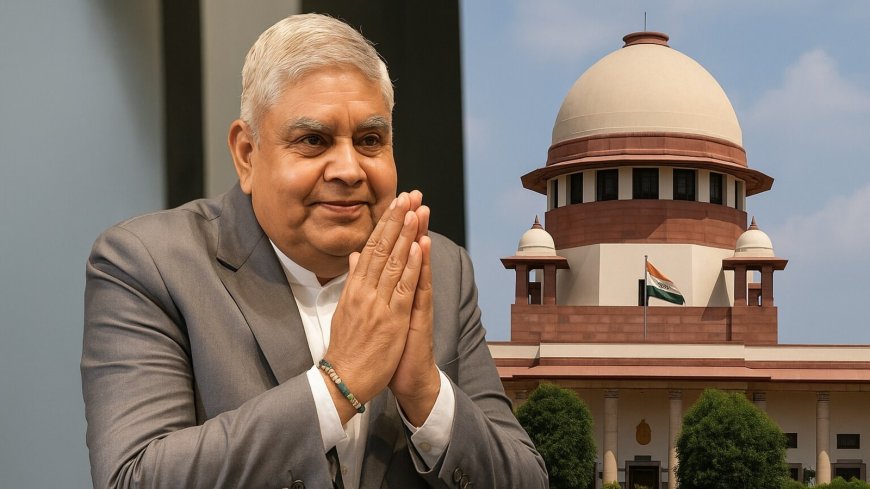‘On what basis?’ Jagdeep Dhankar launches all out attack on SC for setting deadline on President’s assent to State Bills
Jagdeep Dhankar criticised the Supreme Court's ruling allowing judicial review of presidential and gubernatorial assent on state bills, questioning the basis of such directives and asserting concerns over judicial overreach into executive functions.

‘On what basis?’ Jagdeep Dhankar Launches All Out Attack on SC for Setting Deadline on President’s Assent to State Bills
In a significant development in the ongoing discourse between the judiciary and the executive, West Bengal Governor Jagdeep Dhankar has publicly criticized the Supreme Court regarding its recent directive on setting a deadline for the President’s assent to state bills. This move has drawn considerable attention as it raises fundamental questions about the separation of powers in India's constitutional framework.
The Context of the Controversy
The Supreme Court's decision to impose a deadline on how quickly the President must act on state legislation has stirred controversy among constitutional law experts and political analysts alike. Governors, traditionally seen as an extension of the President in the states, play a crucial role in the legislative process. Dhankar's statements come amid concerns regarding the balance of power in India's federal structure.
Governor Jagdeep Dhankar's Position
Jagdeep Dhankar, known for his straight-talking style, questioned the basis on which the Supreme Court could set such deadlines. He emphasized the importance of maintaining constitutional propriety and respecting the timeline in which state bills should be reviewed and assented to by the President. In his statements, he expressed that these issues could affect the autonomy of the legislative body and the presidential office, leading to potential conflicts in governance.
Legal and Constitutional Implications
The heart of the matter lies in the principles of separation of powers and judicial review. Dhankar's criticism reflects a broader debate on the role of the judiciary in governance and how far judicial interventions might influence executive actions. Legal experts are weighing in on whether this move by the Supreme Court could be seen as overreach or a reasonable exercise of judicial authority to ensure timely governance.
The Response from the Legal Community
The legal community is divided. Some legal scholars argue that the judiciary has a role in safeguarding the rights of citizens and ensuring legislative efficiency, while others warn that excessive judicial oversight could undermine the authority of elected representatives. This conflict is especially relevant in times when the executive is often criticized for delays in the legislative process.
Looking Ahead
This ongoing debate is likely to influence future interactions between the judiciary and the executive branch in India. The implications of Jagdeep Dhankar's remarks may lead to further scrutiny of the relationship between state governors and the President, as well as the operational dynamics within the state's legislative assemblies.
For more comprehensive insights, updates, and a deeper understanding of this evolving story, you can visit News by dharmyuddh.com. Keywords: Jagdeep Dhankar criticism Supreme Court, President assent State Bills, Indian Constitution separation of powers, legislative process in India, judicial review implications, West Bengal Governor statements, role of judiciary in governance, constitutional law experts India, executive legislative conflict, governance oversight by judiciary.







